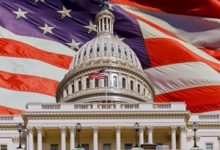Senate Confirms Harry Coker, Jr. As National Cyber Director
Harry Coker: A Seasoned Leader with a Rich Background
Harry Coker, Jr. brings to the role an impressive four-decade career, blending his expertise from both the public and private sectors. As a graduate of the US Naval Academy, the Naval Postgraduate School, and Georgetown University Law Center, Coker’s educational foundation is robust.
His recent role as the Executive Director of the National Security Agency (NSA) showcased his leadership prowess, earning him accolades like the National Intelligence Distinguished Service Medal, the NSA Director’s Distinguished Service Medal, and the IC EEOD Outstanding Leadership Award.
As indicated in a biography provided by Auburn University’s McCrary Institute for Cyber and Critical Infrastructure Security, where he serves as a senior fellow, Coker occupied significant roles within the CIA over a seventeen-year span. These pivotal positions included assignments in the Directorate of Digital Innovation, the Directorate of Science & Technology, and the Director’s Area.
His service included roles such as the Director of the Open Source Enterprise, responsible for leveraging publicly available information, and Deputy Director of the CIA’s Office of Public Affairs, overseeing the Agency’s internal and external communications and media relations.
Notably, Coker was part of the select team that designed the Agency’s organizational construct and operating model. His leadership was integral to formulating and executing the Diversity in Leadership Study, and he served on the Executive Diversity & Inclusion Council. Recognition for his contributions came in the form of the Presidential Rank Award and the CIA’s prestigious Don Cryer Award for Diversity & Inclusion.
Coker’s Vision for the Future: Building on ONCD’s Foundation
During his nomination testimony, Coker expressed appreciation for the existing work ONCD has undertaken, including the comprehensive strategy, implementation plan, and national cyber workforce and education strategy.
He assured the Senate Homeland Security and Governmental Affairs Committee that he would “frankly, continue the good work that ONCD has done with its partners.”
Coker’s commitment to advancing the National Cybersecurity Strategy aligns with the ONCD’s multifaceted approach outlined in its implementation guide. This guide considered a “living document,” encompasses over 65 initiatives addressing critical areas such as infrastructure regulations, cyber diplomacy, and workforce issues. Coker’s leadership is crucial in navigating this intricate landscape and ensuring the successful execution of these initiatives.
Challenges on the Horizon: Navigating Friction and Overlapping Authorities
Coker steps into his role amidst reports of friction among top cybersecurity officials, highlighting the complexity of the cybersecurity landscape.
Inglis, the former ONCD director, reportedly left the office due to a tense relationship and seemingly overlapping authorities with Anne Neuberger, the deputy national security adviser for cyber and emerging technology, and Jen Easterly, director of the Cybersecurity and Infrastructure Security Agency (CISA).
These dynamics add an additional layer of complexity to Coker’s responsibilities. As the National Cyber Director, he will need to navigate and foster collaboration among key players in the cybersecurity domain, ensuring a unified and strategic approach to addressing the nation’s cyber threats.
Optimism for the Future: Coker’s Leadership and Cybersecurity Resilience
As the Senate’s confirmation of Harry Coker, Jr. ushers in a new era for the ONCD, there is a palpable sense of optimism for the future of cybersecurity initiatives in the United States.
With Coker’s wealth of experience, commitment to diversity and inclusion, and dedication to advancing the National Cybersecurity Strategy, the nation is poised to strengthen its resilience against evolving cyber threats. As he takes the helm at the ONCD, Coker’s leadership is expected to be instrumental in shaping a more secure and robust cybersecurity landscape for the United States.





